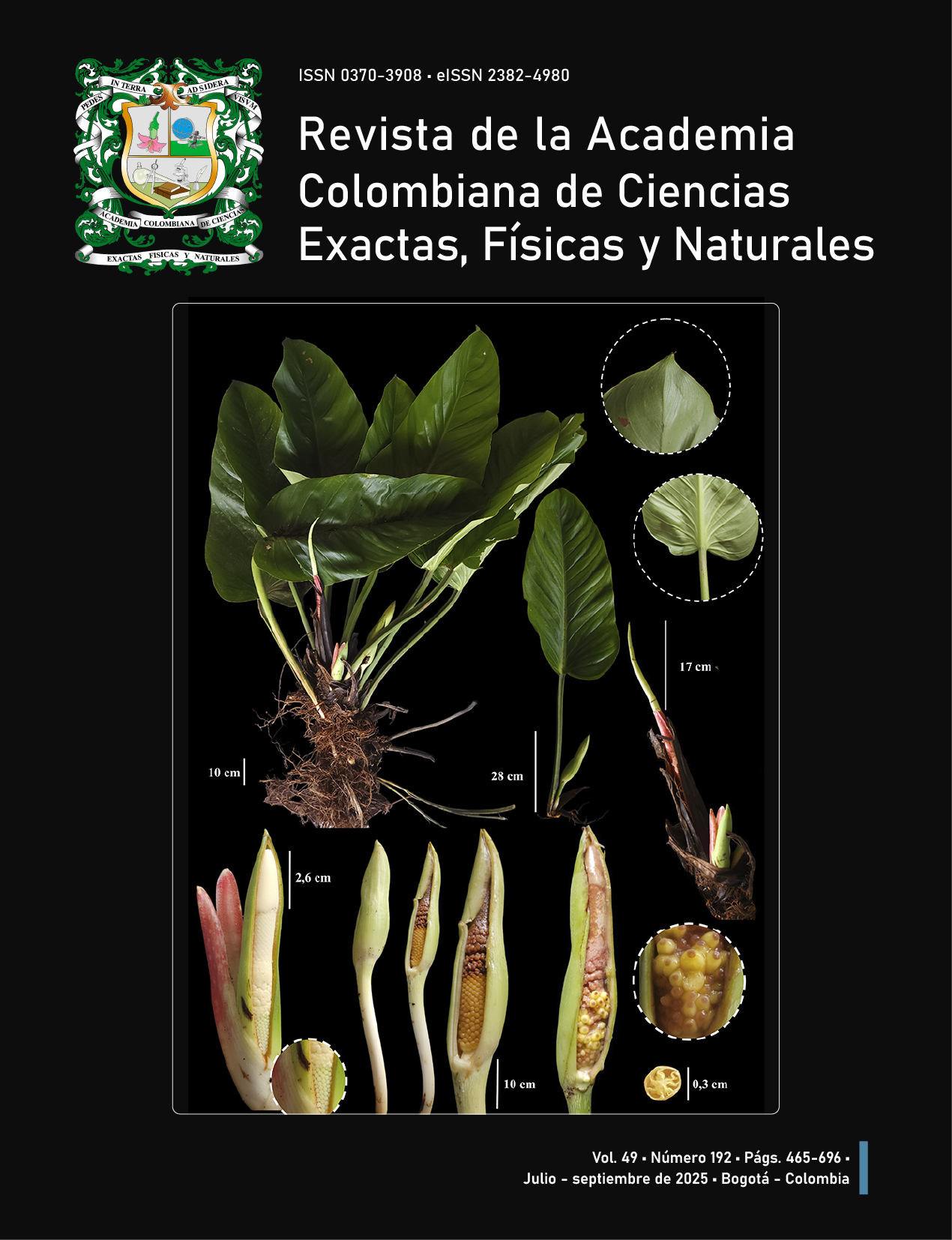Abstract
The theories of the Standard Model (SM) and general relativity (GR) do not provide all the answers to the problems that are currently posed in high-energy theoretical physics. However, string theory constitutes a very fertile theoretical framework where it is possible to find answers and build physics beyond the standard model. Furthermore, it is the most compelling candidate to become the quantum theory of gravity. Here we present a first approach to bosonic string theory, showing some important results incorporated into black holes in the context of holographic dualit.
References
Aharony, O., Gubser, S. S., Maldacena, J., Ooguri, H., y Oz, Y. (2000, enero). Large n field theories, string theory and gravity. Physics Reports, 323(3–4), 183–386. Descargado de http://dx.doi.org/10.1016/S0370-1573(99)00083-6 doi:10.1016/s0370-1573(99)00083-6
Ammon, M., y Erdmenger, J. (2015). Gauge/gravity duality: Foundations and applications.Cambridge University Press.
Becker, K., Becker, M., y Schwarz, J. H. (2006). String theory and m-theory: A modern introduction. Cambridge University Press. doi: 10.1017/CBO9780511816086
Blau, M. (2023). Lecture Notes on General Relativity. Descargado de http://www.blau.itp.unibe.ch/GRLecturenotes.html
Bousso, R. (2002, agosto). The holographic principle. Reviews of Modern Physics, 74(3), 825–874. Descargado de http://dx.doi.org/10.1103/RevModPhys.74.825
Edelstein, J., y Giribet, G. (s.f.). Cuerdas y supercuerdas (R. Coleccionables, Ed.).
Erdmenger, J. (2018). Introduction to gauge/gravity duality (tasi lectures 2017).
Giribet, G. (2023). Introduction to ads/cft. Descargado de https://youtu.be/D_tH0hMSVE?si=Oju15b-kMwcwPnSB
Harlow, D. (2018). Tasi lectures on the emergence of the bulk in ads/cft.
Hartnoll, S. A., Lucas, A., y Sachdev, S. (2018). Holographic quantum matter.
Lust, D., y Vleeshouwers,W. (2018). Black hole information and thermodynamics.
Maldacena, J. (1999). The large-n limit of superconformal field theories and supergravity. International Journal of Theoretical Physics, 38(4), 1113–1133. Descargado de http://dx.doi.org/10.1023/A:1026654312961 doi: 10.1023/a:1026654312961
Maldacena, J. (2014). The gauge/gravity duality.
Natsuume, M. (2015). Ads/cft duality user guide. Tokyo: Springer Japan. Descargado de https://doi.org/10.1007/978-4-431-55441-7
Policastro, G., Son, D. T., y Starinets, A. O. (2001, agosto). Shear viscosity of strongly coupled n=4 supersymmetric yang-mills plasma. Physical Review Letters, 87(8), .
Descargado de http://dx.doi.org/10.1103/PhysRevLett.87.081601 doi:10.1103/physrevlett.87.081601
Probst, J. (2018). Applications of the gauge/gravity duality. Springer Cham. doi: https://doi.org/10.1007/978-3-319-93967-4
Rickles, D. (2014). A brief history of string theory (1.a ed.). Springer Berlin, Heidelberg. doi: https://doi.org/10.1007/978-3-642-45128-7
Strominger, A., y Vafa, C. (1996). Microscopic origin of the bekenstein-hawking entropy. Physics Letters B, 379(1), 99-104. Descargado de https://www.sciencedirect.com/science/article/pii/0370269396003450 doi: https://doi.org/10.1016/0370-2693(96)00345-0
Susskind, L. (1995, noviembre). The world as a hologram. Journal of Mathematical Physics, 36(11), 6377–6396. Descargado de http://dx.doi.org/10.1063/1.531249 doi: 10.1063/1.531249
’t Hooft, G. (1993). Dimensional reduction in quantum gravity
Zaffaroni, A. (2000, septiembre). Introduction to the ads-cft correspondence. Classical and Quantum Gravity, 17(17), 3571. Descargado de https://dx.doi.org/10.1088/0264-9381/17/17/306

This work is licensed under a Creative Commons Attribution-NonCommercial-NoDerivatives 4.0 International License.
Copyright (c) 2025 Revista de la Academia Colombiana de Ciencias Exactas, Físicas y Naturales


